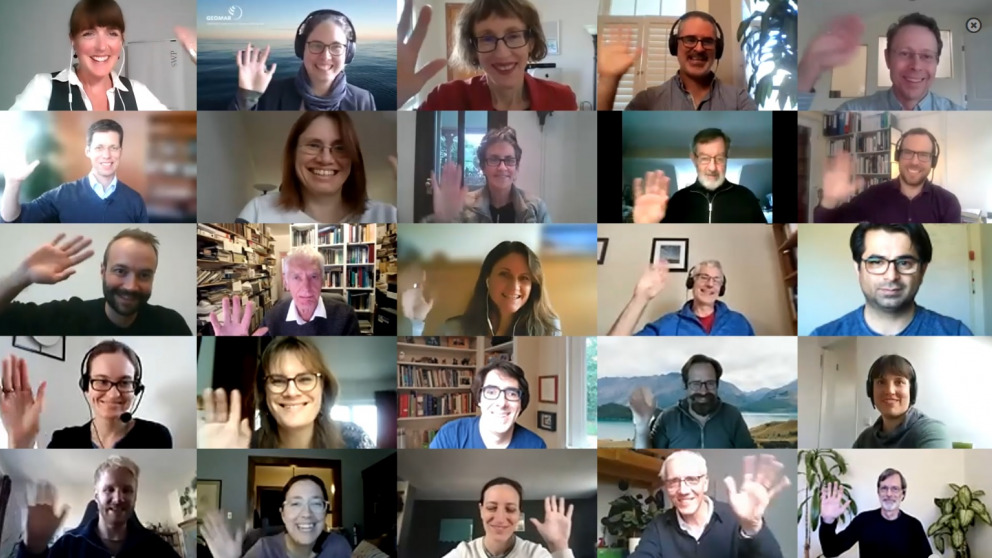"Climate Engineering in Context" Enables Collaboration Across Continents and Disciplines
19.10.2021
The consequences of climate change are becoming more and more obvious, and time is running out to achieve the Paris climate goals. In the climate protection debate and in many climate models, a growing role is played by "negative emissions", which are to be achieved with the help of “climate geoengineering technologies”. At the conference "Climate Engineering in Context", which took place from 4 to 8 October, international experts invited by the IASS discussed the scientific, ethical, political, and social dimensions of these technologies.

In his welcome address, IASS Director Mark Lawrence used the COVID-19 pandemic as an example to show how difficult it is to reduce greenhouse gas emissions: "Over the past year, global CO2 emissions have fallen by seven per cent due to the various lockdowns, which is roughly the rate we would need to maintain year after year over the next few decades to meet the Paris Agreement target of limiting the global temperature rise to well below 2 degrees," adding that to reflect the enormity of the transformation needed, the theme chosen for this year's conference is "Climate Engineering in Context". In addition to scientific knowledge, other forms of information and knowledge are also needed, such as knowledge about how climate engineering techniques are viewed in different cultures.
Developing countries need to be included more
Keynote speaker Ambuj Sagar of the Indian Institute of Technology Delhi made it clear that the climate engineering debate was too limited to the technologically leading countries. "So the first question for me is how to incorporate developing countries more meaningfully and effectively on complex issues, especially those of scientific and technological import." There must be a greater focus on capacity building – after all, it is not only in developing countries that the technical and institutional capabilities for participating in the climate engineering debate are inadequately developed. But a broad debate is necessary to enable "fair and equitable outcomes on climate and sustainable development.”
At the moment, two fundamentally different types of technologies are being discussed: Carbon Dioxide Removal (CDR) aims to remove CO2 from the atmosphere using various methods. Solar Radiation Management (SRM) approaches, on the other hand, seek to alter the Earth’s energy budget by ensuring that less sunlight reaches the planet’s surface or, alternatively, that more of it is reflected away from it by the atmosphere.
Ethical issues at the heart of the debate
Researchers presented projects and initiatives meant to help slow down global warming. These include large-scale interventions in nature: stratospheric aerosol injection, bioenergy with carbon capture and storage, and the increased weathering of coastal areas. One of the central issues repeatedly raised in the panels was the moral dilemma many researching this topic find themselves in: Does discussing these technologies lead to neglecting the fight against the real cause of climate change – CO2 emissions? CDR technologies, and even more so SRM, are still nowhere close to reality, so they will not be able to contribute to climate protection in the foreseeable future. Still, CDR remains part of the climate models of the Intergovernmental Panel on Climate Change (IPCC).
In any case, there was agreement that the societal debate on climate geoengineering should be conducted carefully and broadly to be able to make ethically justified decisions on the research and development of these technologies. Miranda Böttcher, co-chair of the steering committee responsible for organising the conference, stressed: "I strongly believe that transdisciplinary events like CEC can serve as co-creative learning spaces. They bring people together in a way that allows for the exchange of different perspectives in climate engineering discussions, and this is a first step toward developing a common base of understanding that can inform whole-of-society decision-making processes."
